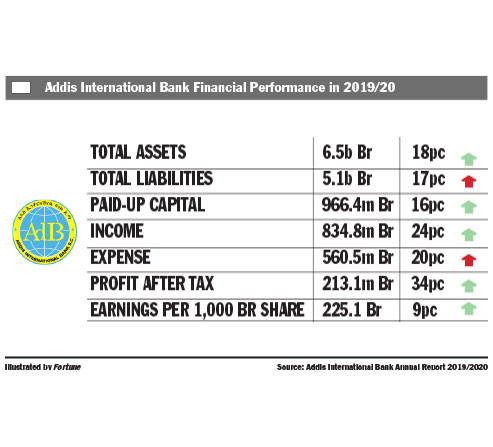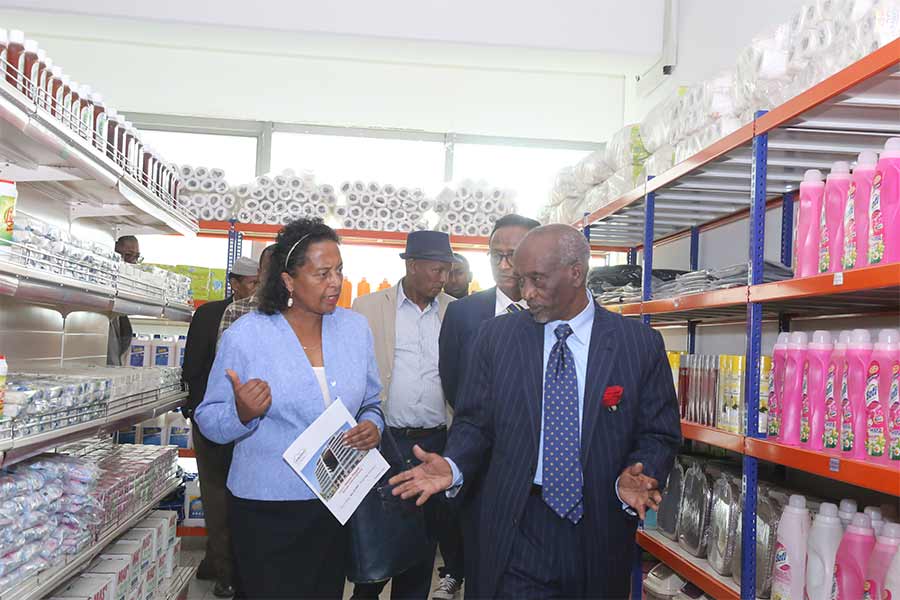
My Opinion | Mar 30,2024
The day I was born, my mother made a vow to take me to the Debre Libanos monastery in the North Shewa zone every year. The plan went smoothly up until I reached the fourth grade. It was then that the day fell outside a weekend for the first time.
I had to resign myself to the fact that I had to skip school for the first time in my life. But our homeroom teacher would have none of it. It was unthinkable for him to accept that I would be away from my school and friends, even for a day. My teacher lost the battle in the end. Consequently, it was as I was inebriated with a sense of loss that I returned to school on the morrow.
I had an identical mood two weeks back as I returned to my elementary school, Edget Behibret. This time I returned not after a day, but decades later. Not too much has changed, except the fact that a new classroom building stood over the area where we had our hall. It made the school director’s office look small, which seemed majestic back then. The small field where we used to play football during our breaks, where I reigned with the nickname Keita of Guinea, as we were gripped with the 10th African Cup of Nations fervour, which Ethiopia hosted, somehow survived.
I was lucky indeed. One among the school guards, Gash Abdi, thanks to his long service to make the connection, came in handy to reminiscence with me about the vagaries life threw at our teachers and the support staff. Above all, it was hard for me to be unemotional as he promised he could get me information about the whereabouts of our sixth and eighth grade English teacher – Etaferahu. It is never easy to forget her supremely inspirational, unusual and dutiful guidance in those uncertain days.
It was instantly I started to sing the song “Sodade” in my mind, which illustrates the nostalgia experienced by Cape Verdeans who have been emigrants, repeating the question, “Who showed you the faraway path?" that was continued with a small part of the population as contract labourers to São Tomé. It seemed to apply to someone such as me who has been away from a place where I spent my formative years.
It was a day or two after that I was invited to a Facebook group, “People who grew up in Addis Abeba.” It is as amusing as it is a source of sodade, as its associates vary with age range or even country of origins. Estranged sons and daughters of Addis Abeba, born out of its being seat for several international agencies, exchange their sweet memories of growing up in Addis. Many are still living in the capital; others are residents elsewhere. One can feel the nostalgia as pictures of old schools pop up, as do the city’s landmarks.
Many stories are exchanged. Some are about riding through the streets of Addis or anecdotes of soothing disconsolation by regularly eating injera in places as far as Canberra, Australia. The only caveat in this nostalgia is the sadness associated with the knowledge that the longing will never be satisfied or fulfilled.
As more stories are told, making us more disconsolate, nothing comes as easy as making a connection and so many visits to the monuments (the school) of the likes of Teacher Etaferahu as their story is being told and retold by the likes of Gash Abdi. The schools need support to improve their facilities and expand their capacities. There is a pool of nostalgia that can be monetised, and used to invest in the schools, if their administrators approached and recognised an alumni network.
PUBLISHED ON
Apr 16,2022 [ VOL
23 , NO
1146]


My Opinion | Mar 30,2024

Fortune News | Apr 03,2021

Sunday with Eden | Mar 30,2024

Fortune News | Sep 08,2019

View From Arada | Apr 27,2024

Dec 22 , 2024 . By TIZITA SHEWAFERAW
Charged with transforming colossal state-owned enterprises into modern and competitiv...

Aug 18 , 2024 . By AKSAH ITALO
Although predictable Yonas Zerihun's job in the ride-hailing service is not immune to...

Jul 28 , 2024 . By TIZITA SHEWAFERAW
Unhabitual, perhaps too many, Samuel Gebreyohannes, 38, used to occasionally enjoy a couple of beers at breakfast. However, he recently swit...

Jul 13 , 2024 . By AKSAH ITALO
Investors who rely on tractors, trucks, and field vehicles for commuting, transporting commodities, and f...

Jul 5 , 2025
Six years ago, Ethiopia was the darling of international liberal commentators. A year...

Jun 28 , 2025
Meseret Damtie, the assertive auditor general, has never been shy about naming names...

Jun 21 , 2025
A well-worn adage says, “Budget is not destiny, but it is direction.” Examining t...

Jun 14 , 2025
Yet again, the Horn of Africa is bracing for trouble. A region already frayed by wars...